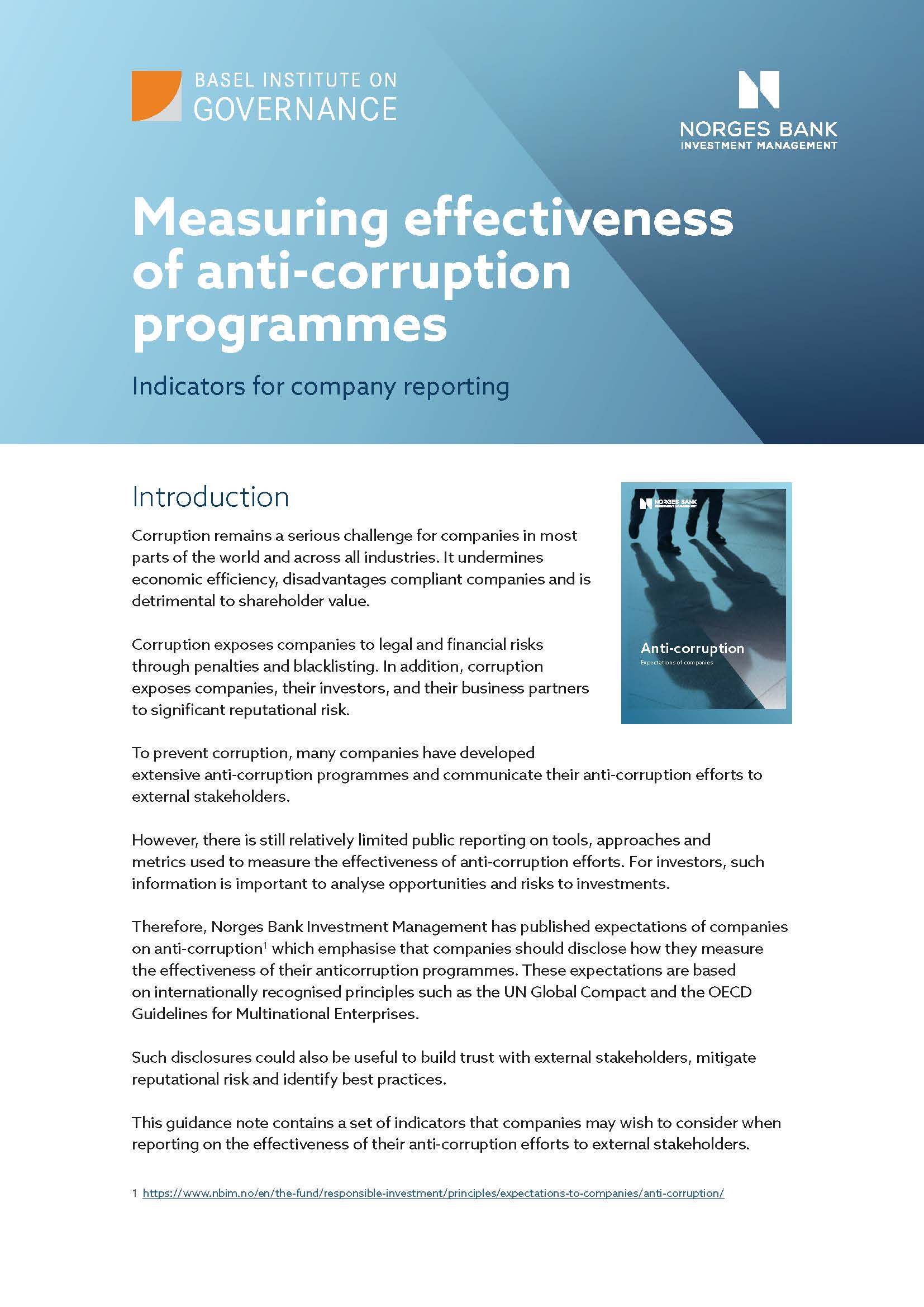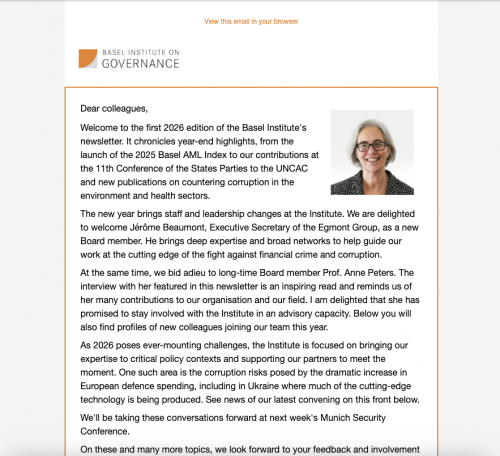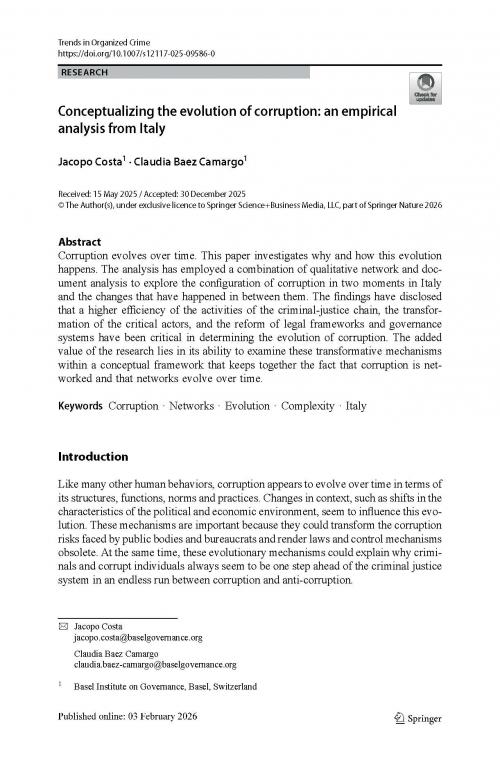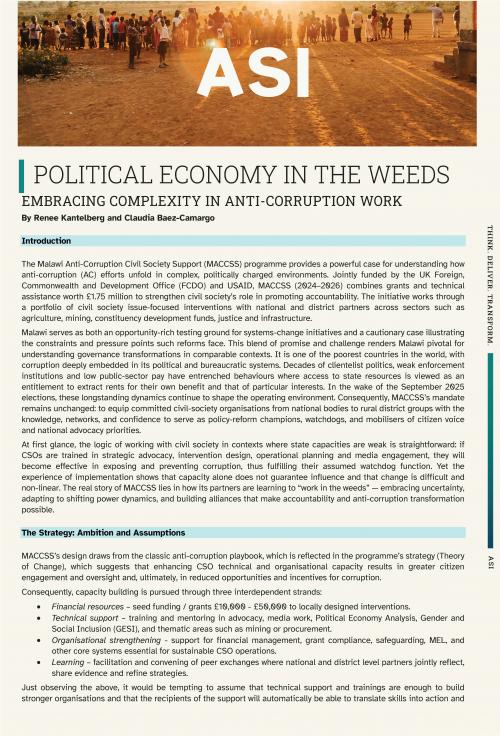Measuring effectiveness of anti-corruption programmes: Indicators for company reporting
This guidance note contains a set of indicators that companies may wish to consider when reporting on the effectiveness of their anti-corruption efforts to external stakeholders. Such disclosures could also be useful to build trust with external stakeholders, mitigate reputational risk and identify best practices.
It is focused on the health sector, which is especially vulnerable to compliance risks because of the complexity of its value chain and the size of the financial flows in the sector.
The guidance note responds to the publication by Norges Bank Investment Management of expectations of companies on anti-corruption, which emphasise that companies should disclose how they measure the effectiveness of their anticorruption programmes. These expectations are based on internationally recognised principles such as the UN Global Compact and the OECD Guidelines for Multinational Enterprises.
Themes of the guidance note cover:
- Culture
- Risk management
- Third parties
- Compliance function
- Oversight
The Collective Action team at the Basel Institute on Governance, under a mandate from Norges Bank Investment Management, facilitated the development of these indicators with a group of health care companies that provided input in writing and verbally during February – September 2020. Participating companies are: Alexion Pharmaceuticals Inc, AstraZeneca Plc, Bristol Myers Squibb Co, Eli Lilly and Co, GlaxoSmithKline Plc, Merck KGaA, Novartis AG and Novo Nordisk A/S.
Links and other languages




